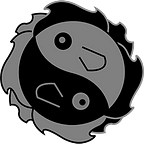Decentralized Autonomous Organizations (DAOs): A Look at the Future of Collaborative Governance
Decentralized autonomous organizations (DAOs) are a new and innovative way for people to collaborate and achieve shared goals. They operate on decentralization, transparency, and automation principles, leveraging blockchain technology to automate decision-making and record-keeping. This article explores the concept of DAOs, core features, and potential applications.
What are DAOs?
DAOs are essentially internet-based communities with shared objectives that are governed by rules encoded in computer programs (smart contracts) on a distributed ledger technology (DLT). Unlike traditional organizations with hierarchical structures, DAOs distribute power among their members, enabling collective decision-making through token-based voting systems. This fosters a more democratic and equitable approach to governance.
Key Features of DAOs
- Decentralization: Decision-making power is distributed among DAO members, eliminating the need for a central authority. Smart contracts automate tasks and enforce the organization’s rules, reducing reliance on human intervention.
- Transparency: All transactions and decisions are recorded on a DLT, providing a transparent and immutable record for all members to access. This fosters trust and accountability within the DAO.
- Automation: Smart contracts automate key processes within a DAO, such as voting, treasury management, and task execution. This reduces the need for manual intervention and streamlines operations.
- Community-driven: DAOs are typically driven by a strong sense of community, with members collaborating to achieve shared goals. Token ownership often determines voting rights and governance participation.
How DAOs Work
DAOs function using a combination of smart contracts and DLT. Smart contracts are self-executing programs that govern the DAO’s operations according to a predetermined set of rules encoded on a DLT, a secure and transparent database shared across a network of computers.
When a DAO member proposes a change or initiates a vote, the relevant smart contract executes the process according to the DAO’s predetermined rules. Once a vote reaches a consensus, the smart contract automatically executes the outcome, eliminating the need for manual intervention or manipulation.
Potential Applications of DAOs
DAOs have the potential to revolutionize various sectors by enabling new forms of collaborative governance and innovation:
- Decentralized Finance (DeFi): DAOs can be used to manage DeFi protocols, allowing token holders to vote on proposals for lending, borrowing, and other financial activities.
- Venture Capital and Fundraising: DAOs can be used to pool resources for investment purposes, with token holders collectively deciding on investment opportunities.
- Philanthropy and Grant Distribution: DAOs can be used to manage charitable funds and distribute grants transparently, with token holders voting on funding allocations.
- Social Media Platforms: DAOs can be used to create community-owned social media platforms, where users govern content moderation and platform development through token-based voting.
Challenges and Considerations
Despite their potential, DAOs also face some challenges:
- Legal Uncertainty: The legal status of DAOs is still unclear in many jurisdictions, making it difficult to determine liability and regulatory compliance.
- Security Risks: DAOs are susceptible to hacking and smart contract vulnerabilities, which could lead to financial losses.
- Scalability: Current DAO models may not be scalable to very large organizations with complex governance needs.
The Future of DAOs
DAOs represent a novel approach to organizational governance with the potential to disrupt traditional hierarchical structures. As the technology matures and legal frameworks evolve, DAOs are likely to play an increasingly significant role in various sectors. By fostering collaboration, transparency, and automation, DAOs can empower communities to achieve shared goals in a more efficient and democratic manner.
In Conclusion
DAOs are a powerful new tool for collaborative governance with the potential to transform organizations' operations. While challenges remain, DAOs hold immense promise for the future of internet-native communities and decentralized collaboration.
Inspired by:
Decentralized Autonomous Organisations (DAOs): A Scoping Paper
Decentralized Autonomous Organizations (DAOs) Summary of Scoping Paper
NOT INVESTMENT ADVICE
Any views, opinions expressed, and consulting services provided are for educational purposes only; you should not construe any such information or other material as legal, tax, investment, financial, or any other advice. Sessions do not constitute a recommendation or endorsement of any particular cryptocurrency asset
#DAO #DecentralizedGovernance #FutureofWork #Blockchain #Web3 #CommunityDriven #CollaborativeEconomy #TokenVoting #Transparency #Cryptocurrency
